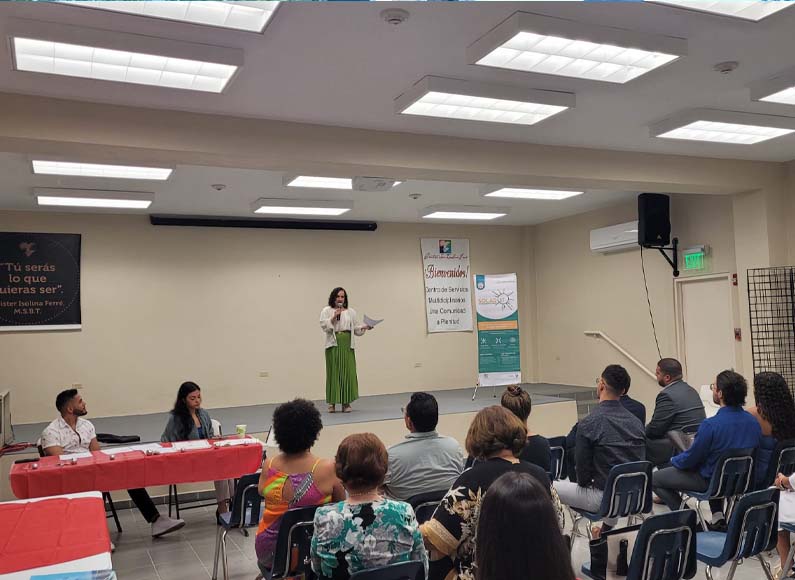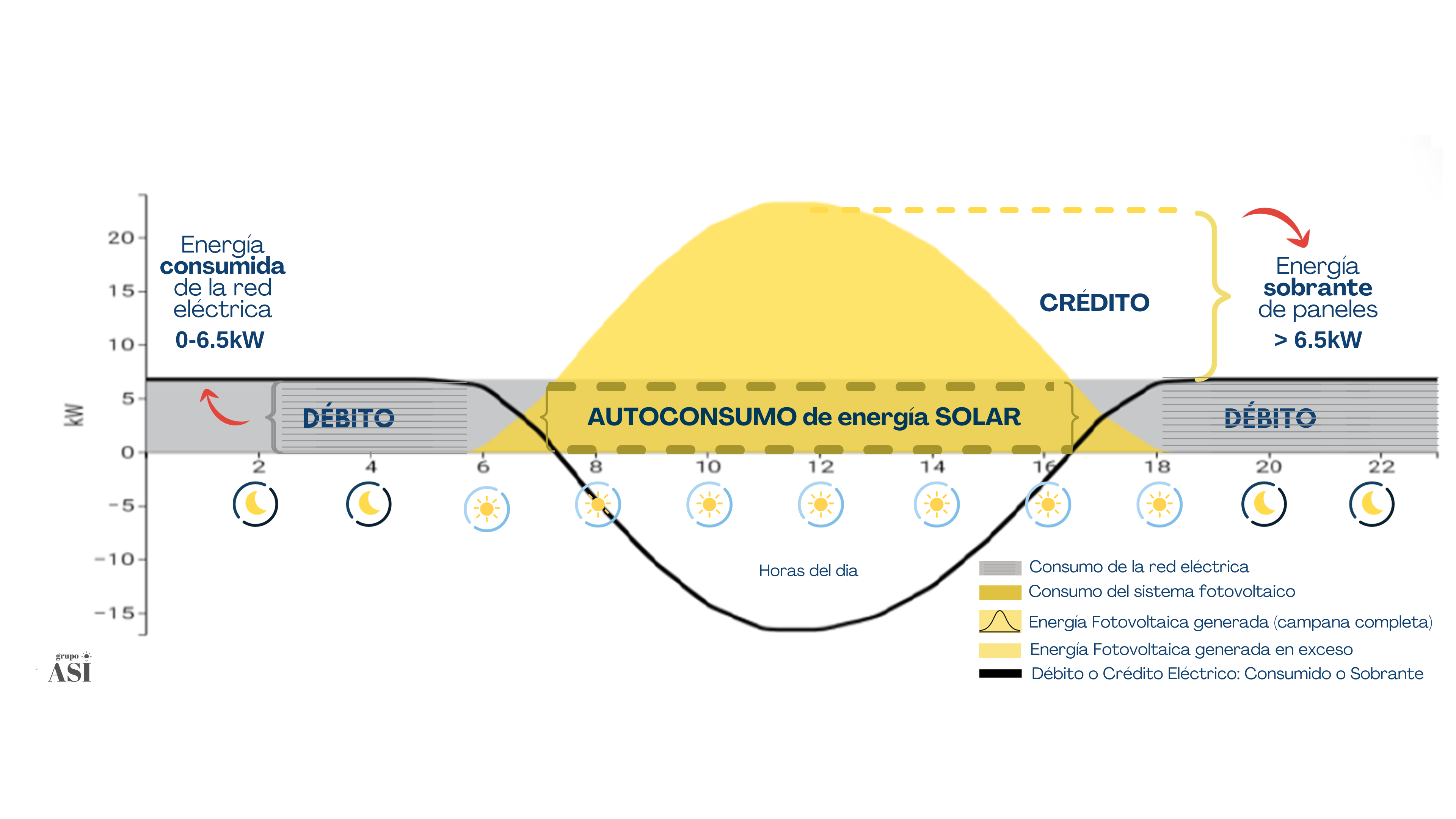Energy efficiency refers to optimizing energy use, reducing consumption and maximizing environmental savings and results. By improving the energy efficiency of businesses, we not only reduce energy consumption and, therefore, utility bills, but also reduce greenhouse gas emissions, and contribute to the conservation of natural resources.
It is critical to understand the importance of energy efficiency and how we can achieve it. Energy efficiency is important for several reasons:
- Energy Cost Savings: Using less energy to achieve the same output or result reduces energy costs, which can be beneficial at the business level. This translates into lower utility bills and less reliance on energy resources.
- Increased competitiveness: For businesses, energy efficiency can improve competitiveness by reducing production costs and improving profitability. It can also help meet environmental regulations and meet the expectations of sustainability-conscious customers.
- Resource conservation: Energy is a finite and valuable resource. Using it efficiently contributes to the conservation of natural resources and reduces pressure on the production and extraction of fossil fuels and other non-renewable energy resources.
- Emission reduction: Energy generation and use are often associated with the emission of greenhouse gases and other environmental pollutants. Improving energy efficiency can help reduce these emissions, which is critical to addressing climate change and improving air quality.
- Sustainability: Energy efficiency is a key component of sustainability. By using less energy, the ecological footprint is reduced, and a more sustainable lifestyle is promoted.
Energy saving has become an increasingly important concern in today’s world. With rising energy costs and growing awareness of climate change, business owners are looking for ways to reduce their carbon footprint and save money on their energy bills. It is in this context that electricity consumption analyses play a fundamental role in this process. These reports provide detailed information on the energy consumption of a business, allowing homeowners to make informed decisions about their energy consumption.
Energy efficiency is important not only to reduce costs and decrease dependence on fossil fuels, but also to mitigate climate change and preserve natural resources. Globally, governments, businesses and individuals are working to improve energy efficiency in their operations and daily habits as part of efforts to achieve a more sustainable and environmentally friendly future.
Running an energy-efficient business not only reduces energy costs, but also contributes to sustainability and environmental responsibility.
Here are 10 steps business owners can take to make sure their operation is energy efficient:
- Energy consumption analysis: Start by conducting an energy consumption analysis in the business. This involves a detailed analysis of how energy is consumed in your company. Areas of high consumption and opportunities for improvement will be identified.
- Renewable energy sources: Investigate the possibility of using renewable energy sources, such as solar panels or wind turbines, to supply some or all your business’s energy needs.
- Incentives and subsidies: Find out if there are any tax incentives or subsidies available at the local, state, or federal level for energy efficiency projects at your company.
- Use of more efficient technologies: Employ devices, equipment, and systems that are designed to consume less energy compared to their less efficient counterparts. For example, LED bulbs instead of incandescent bulbs, motion sensors to turn off lights in unused areas, windows to make the most of natural light, ENERGY STAR RATED APPLIANCES, A/C inverters and categorized with appropriate SEER levels, and hybrid or electric vehicles.
- Improve HVAC: Make sure heating, ventilation, and air conditioning (HVAC) systems are well-maintained and set up efficiently. You can install programmable thermostats and occupancy sensors to prevent energy waste.
- Insulate and seal the building: Improve the insulation of your building to prevent heat or cold leaks. Also, seals cracks and gaps that may allow unwanted air to enter.
- Monitoring & Technology: Use monitoring systems and technology to track real-time energy consumption and make data-driven decisions to improve efficiency.
- Set goals and metrics: Define clear energy efficiency goals for your business. These can be specific reductions in energy consumption or the implementation of more efficient technologies. Establish metrics to measure progress and success.
- Involve employees: Energy efficiency should be a concern for everyone in the company. Educate your employees on the importance of saving energy and encourage them to contribute more efficient ideas and practices.
- Educate customers and suppliers: Communicate your business’s energy efficiency efforts to your customers and suppliers. It can influence your purchasing practices and decisions.
Implementing energy efficiency in your business is a long-term investment that can generate significant savings and improve your company image while contributing to the environment. In addition, it often translates into a competitive advantage in today’s market.
The Energy Analysis that we offer at GRUPO ASI (Independent Solar Analytics), provides us with valuable information about the energy performance of businesses and helps identify areas for improvement. GRUPO ASI is an independent and reliable third-party provider of energy analysis for the design of solar systems and batteries. GRUPO ASI offers, in conjunction with consumption analysis, customized photovoltaic system designs for your business completely FREE, if your business is in a RURAL area of Puerto Rico. We are a neutral alternative to reliable information in the market.
Our energy analyses can be used by small businesses to estimate their electricity consumption and adapt practices that promote energy efficiency, as well as the costs of photovoltaic systems for their business, and to apply for financing opportunities. GRUPO ASI offers personalized advice in relation to federal incentives to acquire renewable systems for your business through the USDA program REAP (Rural Energy America Program).
Likewise, at GRUPO ASI we support companies in the process of receiving proposals from installers and in making the final installation decision if they wish.
If you are interested in a consultation with a GRUPO ASI Analyst, please contact us at GRUPOASI@fundacionborincana.org or you can request your report directly in the online form at: bit.ly/análisis-GrupoASI




